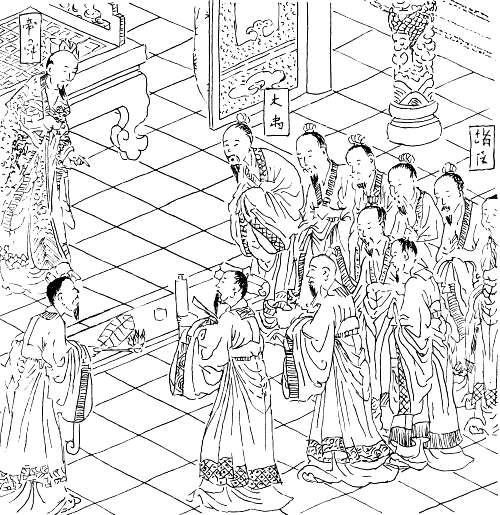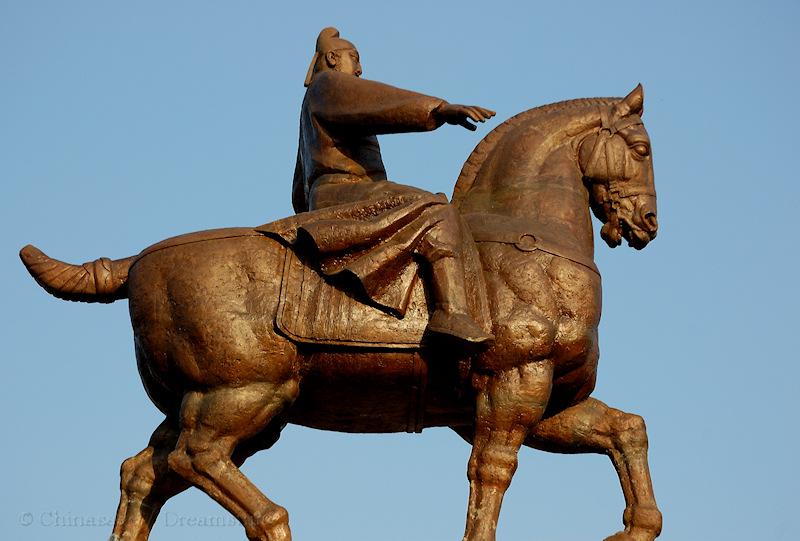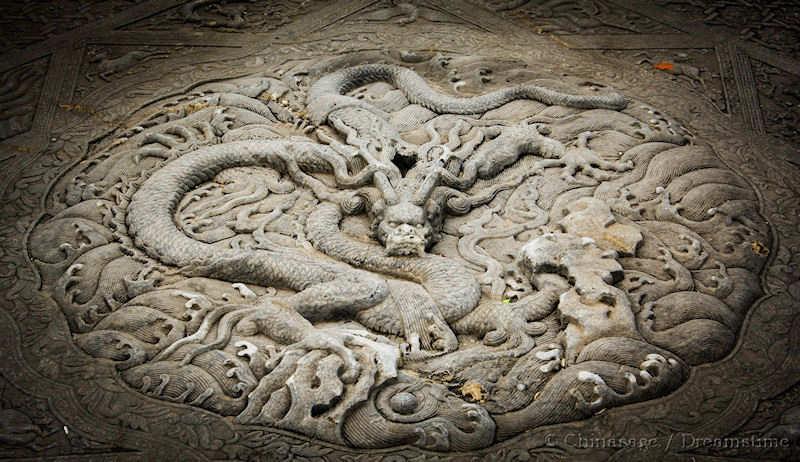Mandate of Heaven

The Mandate of Heaven 天命 tiān mìng is an important concept running throughout Chinese history. The Emperor of China only ruled as long as he had the support of heaven (the realm of the gods). The Mandate of Heaven (another translation is ‘god's will’ or transliterating ‘heaven fate’) was a guiding principle as far back as the Shang and Zhou dynasties. The Emperor was known as ‘Son of Heaven’ 天子 tiān zǐ, the sole human link between Earth and the controlling Heavens above. As the sole such intermediary on the world he outranked all other rulers and this lead to clashes with Europeanrulers who considered themselves his equal. In the Book of Documents ➚ (周书 Zhōu shū, 康诰 Kāng gào chapter) it is made clear that from the Zhou dynasty onwards the Mandate of Heaven was never permanently held by right. In the early dynasties the possession of nine bronze tripods (鼎 dǐng) was an integral part of the right to rule. Each tripod was said to be inscribed with the map of one of the nine provinces that made up the country. In addition the possession of a jade disc the ‘He shi bi’ gave legitimacy to rule.

The sign that the mandate had been lost would be made evident by all kinds of calamities including natural ones: earthquakes, storms, solar eclipses, floods, drought, famine and plague. Other signs could be a more personal evidence from the emperor's own behavior: cruelty, corruption, military defeat and incompetence. These were all interpreted as signs of the displeasure of heaven. To rise in rebellion when these signs occurred was justified. A new dynasty would claim their successful seizure of the Imperial throne was a proof of their mandate, because the success of the rebellion was seen as heaven's approval of the transfer of the mandate of heaven. A Chinese word for ‘revolution’ means literally removal of order (mandate) 革命 gé mìng. The fall of a dynasty when the mandate was lost was considered a natural part of the dynastic cycle repeated throughout history.
Divine Rights of Kings
The alternative guiding philosophy of the Legalists and kings in medieval Europe was by divine right. The right to govern was by birthright and could not be challenged; so rebellion could never be justified. The Mandate of Heaven is the pinnacle of Confucian responsibility. The ultimate responsibility is the Emperor's duty towards heaven from which all other duties flow. The mandate implies the ruler is the most virtuous person, and will lose the mandate should his virtue be seen to fade. Symbolically this duty included the proper rites at the Temple of Heaven at the start of each year. The emperor would kowtow at the temple to show his subservience to heaven. When China was ruled by foreign people (e.g. Mongols and Manchus) the new rulers needed to prove that they now had the Mandate, and they did this by performing the same ancient rites. If the Empire is rocked by natural disasters or revolts the appropriate response, to keep his mandate, was for the Emperor to admit to his failings and adopt a new reign name and so effectively restarting his reign from scratch.

The ‘Mandate of Heaven’ philosophy lives on even today after the end of Imperial dynasties. The Communist government of China will be tolerated as long as it serves the people with increased prosperity, should this falter then revolt will inevitably follow as a natural consequence, loyalty to a regime/dynasty is never permanent. Chairman Mao himself is famous for the maxim ‘to rebel is justified ➚ 造反有理 zào fǎn yǒu lǐ’.